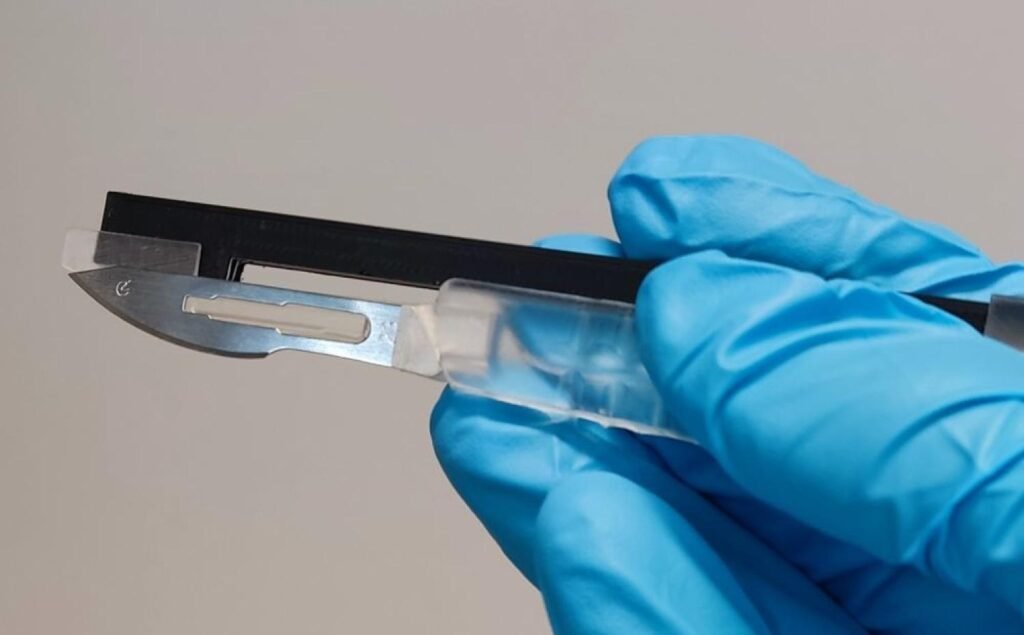A new proof-of-concept surgical tool developed at UCT Prague could one day allow surgeons to analyze tissue biochemistry in real time. Researchers from the Sofer Group have created a prototype scalpel with an integrated electrochemical sensor, fabricated using 3D printing and carbon nanomaterials. This innovation, described as a “lab-on-a-scalpel,” represents a step toward smarter surgical instruments capable of detecting tissue conditions during procedures.
The sensor is embedded in the scalpel handle and designed to detect low concentrations of metabolites under controlled laboratory conditions. It was produced using commercially available 3D printers and a composite material that combines plastic with conductive carbon. The device is optimized for specific analytes depending on factors such as pH and buffer composition, and it has demonstrated sensitivity to compounds associated with cellular stress responses.
Although the current version is not yet suitable for clinical use, the researchers envision future applications in emergency and oncological surgeries, where rapid biochemical feedback could guide decision-making. For example, the scalpel could help identify inflamed or cancerous tissue by detecting changes in ion concentration, pH, or metabolic markers. This would reduce reliance on external lab tests and potentially shorten surgical times.
Article from UCT Prague: A scalpel that can diagnose? UCT Prague scientists published a new diagnostic tool concept
Abstract in Analytical Chemistry: Lab-on-a-Scalpel: Medical Tool Incorporating a Disposable Fully 3D-Printed Electrochemical Cell Promoting Drop-Volume Chemical Analysis in the Operating Theater

